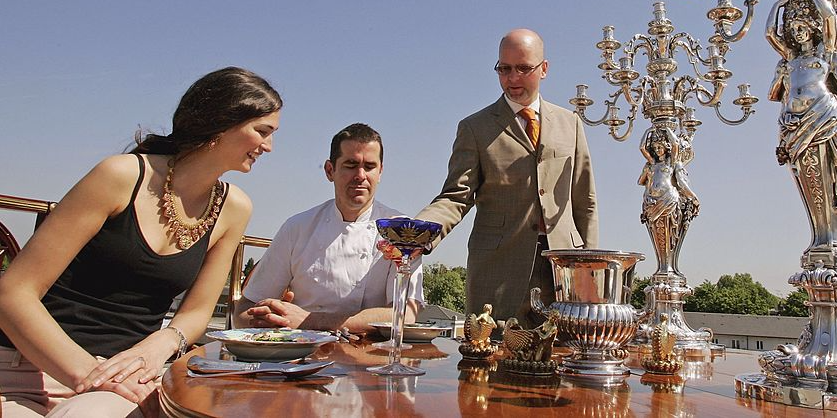The “richcession” – a recession that disproportionately impacts the wealthy, isn’t in the cards. Experts say the richest are actually even richer and spending more than they were before the pandemic. You can thank rising stock prices and YOLO spending culture for the boom in luxury markets. Loading Something is loading.
Thanks for signing up!
Access your favorite topics in a personalized feed while you’re on the go.
The so-called “richcession”—the idea that the super wealthy are feeling economic pain more than other groups right now—isn’t panning out as a reality, and in fact, rich people have never been wealthier, and are spending more than they were before the pandemic, experts told Insider.
“The rich are a lot richer today than they were pre-pandemic. Leverage is low. They have very little debt and make a 30-year-fixed rate loan and they’ve locked in very low interest rates,” according to Moody’s chief economist Mark Zandi. “When people say ‘richcession’ I just don’t see it.”
Notions of richcession—a term coined by the Wall Street Journal recently to describe a downturn that disproportionately impacts the wealth—have been gaining traction this year. But the idea is largely a misinterpretation of some economic data, Zandi said, such as the wealthiest consumers pulling back on Rolexes and other luxury goods.
It’s not because they’re too poor to afford a Rolex: High-income households have over a trillion sitting in savings, Zandi estimates, and the top 1% are holding onto around 30% of all national wealth, Fed data shows. In fact, the top 1% hasn’t been this wealthy since 1989.
Rather, the focus of consumers has largely shifted to services – experiences, like, say, pricey Taylor Swift tickets – rather than goods, which were in red-hot demand during the pandemic. Most Americans now have “spent up” demand for goods, but still have pent up demand for services, Zandi says.
“It’s just a shift in preferences,” he added. “They’re out doing things, so that’s where the money is. They’re going to see Taylor Swift for $2,000 a pop. They’re not buying Rolex watches.”
And while the Rolex may be a coveted item among a younger set of newly rich spenders—think crypto bros and newly minted Tesla millionaires—the ranks of the ultra wealthy are likely spending a lot more on the likes of Patek Philippe and other super high-end brands.
YOLO spendersThe wealthy are actually spending more now than they were prior to the pandemic, according to Claudia D’Arpizio, a partner at the consulting firm Bain & Company. In her experience, luxury spending is highly correlated with the stock market, and investors have enjoyed handsome returns so far this year as the S&P 500 rebounds from its 2022 lows.
“There are also psychological reasons, like the feeling that you only live once,” D’Arpizio told Insider. “The fear of COVID has created a sort of … selfish attitude, and people are more concentrated in feeling good more so than other topics. So we don’t see a reduction in consumption in the top hand, to be honest.”
Sales in the global market for luxury goods and services grew 20% to $1.5 trillion last year, around 10% higher than profits notched in 2019, Bain & Company estimated.
The luxury services sector was a particular hot spot. Sales in the luxury hospitality industry more than doubled to $211 billion, partly driven by strong demand for travel.
Scott Dunn, a luxury vacation planner and travel tour operator, says high-end vacation bookings have increased 34% in the last six months compared to the same period last year.
The average vacation booking is valued around $35,000, but the price tag for planned vacations can run over $400,000, Scott Dunn North America’s general manager Bridget Lackie told Insider. Vacations on the higher-end of the spectrum involve wealthy consumers splurging on bucket list trips – things like expeditions to the Arctic, a private after-hours booking of the Vatican, or traveling to places that are only accessible via helicopter, Lackie said.
“The pandemic changed how our guests approach travel. The majority of our guests feel as though time was lost, so they want to make up for the years when everything was closed,” Lackie added.
Demand for luxury real estate has also stayed high, with luxury property prices rising 5% from the previous year, Redfin estimates. Though high mortgage rates have frozen most of the residential housing market, wealthy buyers don’t seem to be put off by the high costs of borrowing, if it means having a top-quality living situation.
Jennifer Stillman, a New York-based agent for the luxury property group Douglas Elliman, says interest has remained healthy even for some “well-priced” properties, which carry prices tags around $4 million and above and include lavish amenities like built-in tennis courts, swimming pools, and restaurants that are exclusive to tenants.
“Summer is typically slower for us. But we’ve been quite busy,” Stillman said.
And though Zandi says he expects consumers to pull away from goods purchases, the rich have continued to snap up high-priced items last year as well. Luxury car sales notched a new record, growing 6% to $627 billion in 2022. So did private yacht and jet sales, which grew 18% to $28 billion.
“If this is a richcession, the rich are probably saying, bring it on,” Zandi said. “It doesn’t feel like a richcession to me.”
